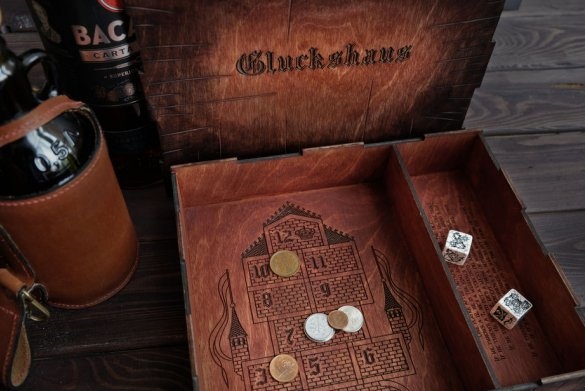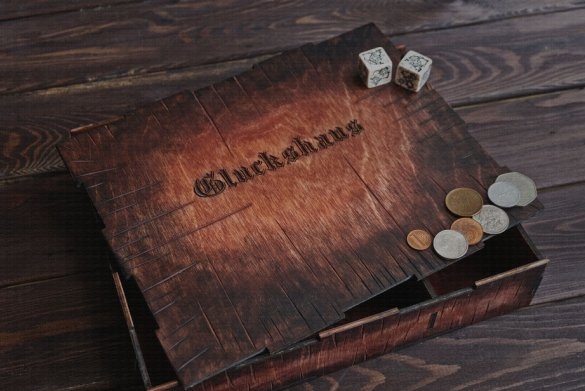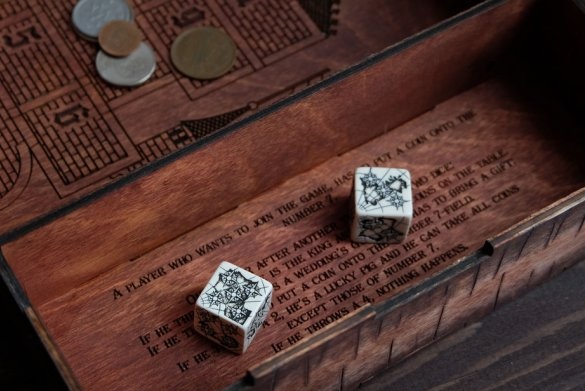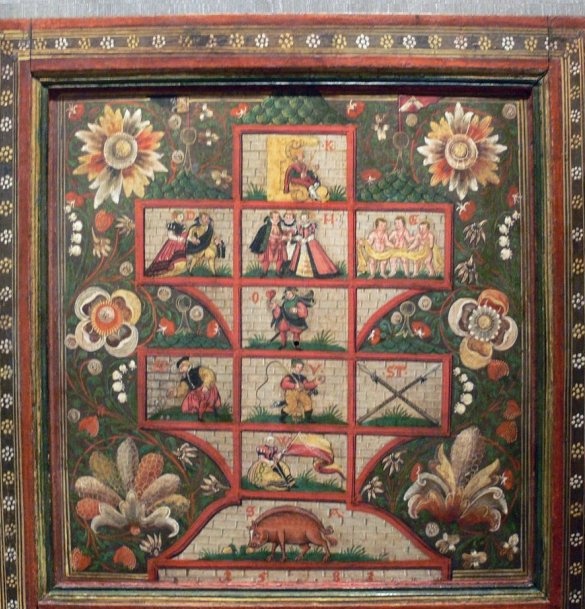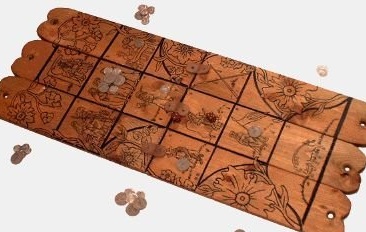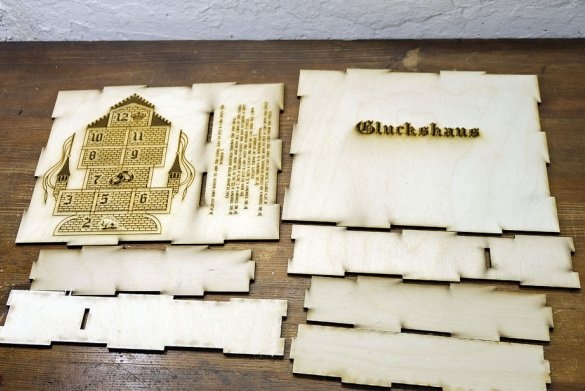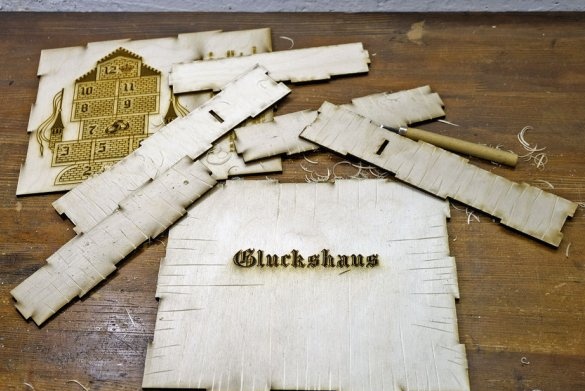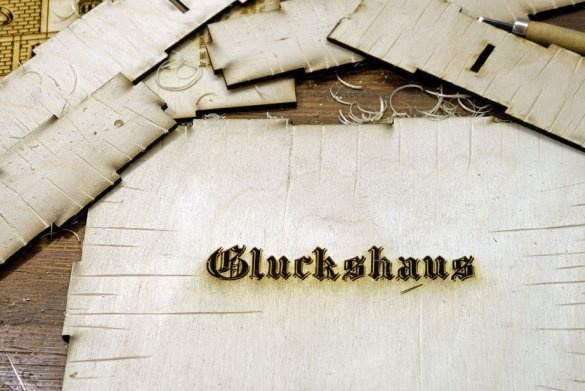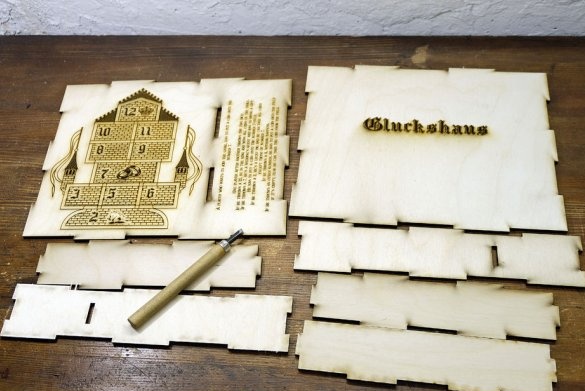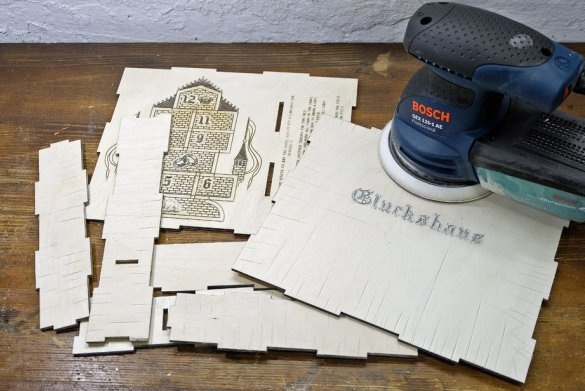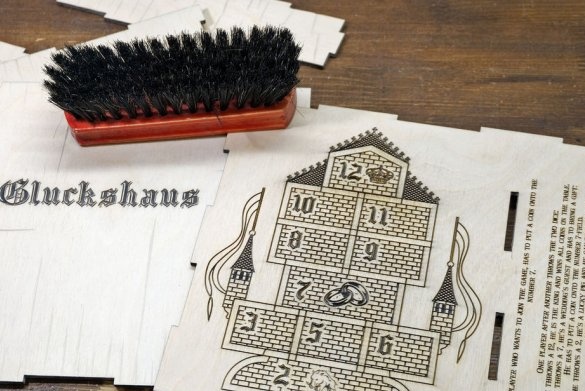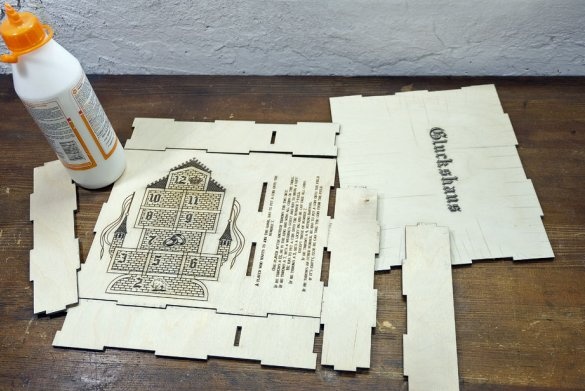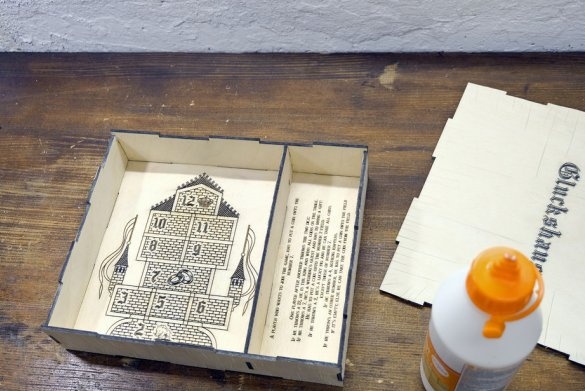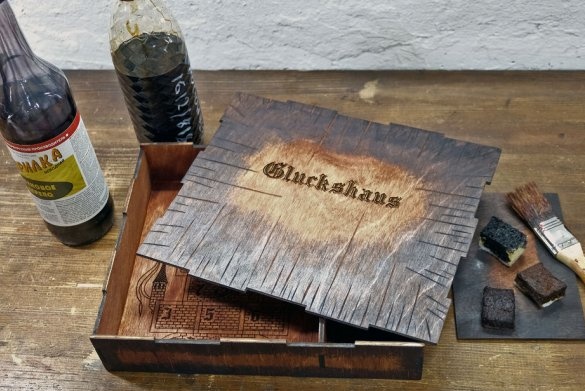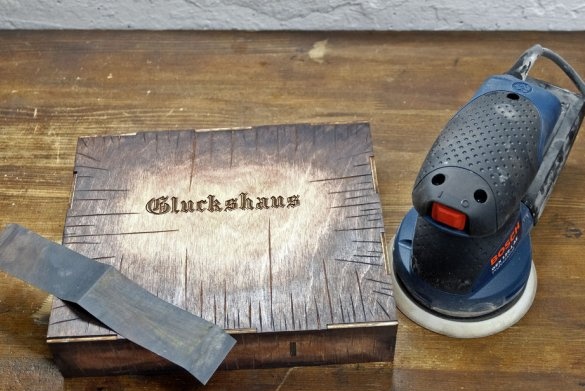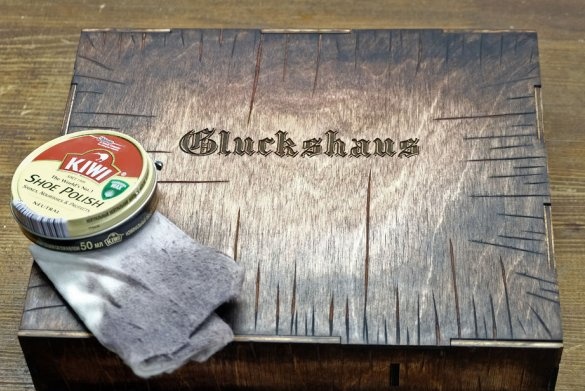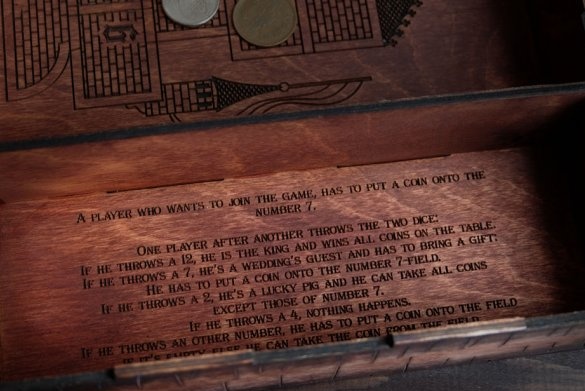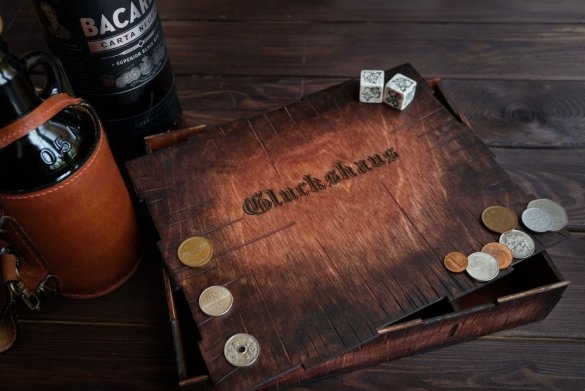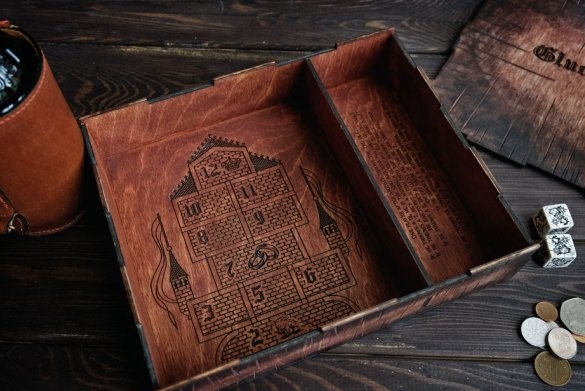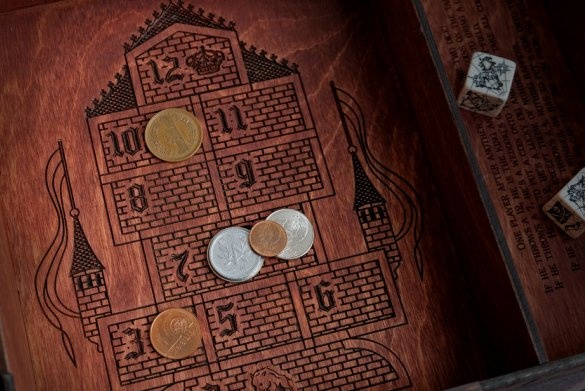In this article, our compatriot from Siberia Ivan Beldiagin will tell how he made an old dice game to his hands. Let's listen to the author of the project.
Want to surprise guests? Show them the game you played in the 15th century!
Offer them a completely new entertainment, the rules of which can be explained in just 2 minutes, and then enjoy the game all evening.
“Glückshaus” (“House of Fortune”, “Happy Pig”) - a game for money. Glitch - happiness, prosperity, luck, success. And, indeed, the most important thing in this game is luck.
Easy, fun and very gambling for money (or whatever else) is ideal for a warm friendly company at a party where you just want to relax and have fun! You can play “House of Fortune” for a very long time, so this is ideal if you need to pass the time, and not strain yourself intellectually.
Making the field for the game is extremely simple - it all depends on what result you want to get.
You will need a board with fields for numbers from 2 to 12, two dice and coins for each player. In the simplest version, the field can be drawn with a stick in the sand or with a knife on the countertop, if desired, drawn or printed on a sheet of paper.
The master went the other way and decided to make a full-fledged beautiful wooden game.
Tools and materials:
-Plywood;
-Laser cutter;
-Grinder;
-Brush;
- Joiner's glue;
- Stain;
-Sandpaper;
-Wax;
Step One: The Story
This simple dice game was common among visitors to taverns and mercenaries in the 15th and 16th centuries. It has been popular throughout the Renaissance throughout Europe. Now "reenactors" like to play this game.
Glückshaus belongs to the group of games under the general name "Happy Seven". Glückshaus, which means "House of Happiness," originated in Germany at the end of the 15th century, but quickly, in various forms, spread throughout Europe. Regional versions of the game differ in the playing field and are called: “House of Fortune” or “Happy Pig” in England, “Playing Harlequin” in the Netherlands, “Playing the Boat” in Italy. This is one of the first betting board games that eventually led to the creation of casinos in the 19th century. Thus, this is nothing more than a game of chance in which coins (tokens, sweets, etc.) are won or lost when two dice are thrown. Two or more players can play, and anyone can join or leave the game at any time.
The game has some advantages compared, for example, with cards: ease of training, interest from the audience due to the jackpot and ease of exit.
In the photo, the board for the game "Glückshaus", dating from 1583, are stored in the National Museum in Munich.
Step Two: Laser Cutting
Cut parts from plywood and engrave drawing and text.
The wizard provided two files, for plywood 3 and 4 mm.
GluksHous plywood 4mm .cdr
GluksHous plywood 3mm .cdr
Step Three: Scratches
To give an old look, the master applies scratches to plywood.
Step Four: Grinding
Grinds the details.
After polishing, it removes dust with a brush.
Step Five: Build
Assembles a box with fixation on glue.
Step Six: Cover
Then the master covers the box with stain, first light, then, in some places, dark.
After drying, polishes the surface and applies wax.
Everything is ready, now about the rules of the game.
Various playing fields that have survived to this day indicate that there were several rules. The most common game rules used today by players are taken from Franky Donato's article “Glückshaus”.
It is more convenient if the game is played with the same bets (everyone uses coins of the same denomination), but this is not necessary. Two or more players may participate in a game.
1. Throw two dice.
2. We look at the results of the throw.
2.1. If, on cubes, 3, 5, 6, 8, 9, 10 or 11 fell out - mark the corresponding field. If there is a coin in this field, take it. If the field is empty, put a coin on it.
2.2. If it falls 7, put the coin in field 7. This field is called “Wedding”, it accumulates coins (“wedding present”) and becomes a jackpot.
2.3. If 2 so-called “Pig” has fallen, take all the coins on the board (“put a pig” to other players), except for those that are on field 7 (“Wedding”).
2.4. If it is 12, which is called the “King,” take all the coins on the board. Absolutely everything, because no one can refuse the king in the medieval world!
2.5. If 4 fell out - a field that is absent on many boards, including this one - the player does nothing, he skips the move. The action proceeds to the next player (see next paragraph 3).
In articles, they often write about field 4 as a special field for the owner of the board. it is said that if this number is dropped, the player does not miss a move, but gives the coin to the owner of the board. The master did not find confirmation of these rules, so this item is optional, you can play both this and the other way.
3. Pass the dice clockwise to the next player.
P.S. If a player wants to join the game, he must put a coin (entry fee) on field 7 (“wedding”).
By the same rule, the game does not start from an empty board. All players who decide to play put a coin on field 7 (“wedding”).

